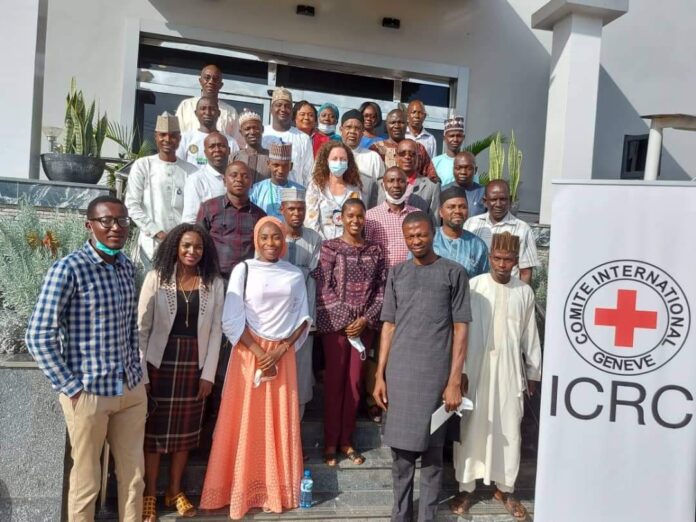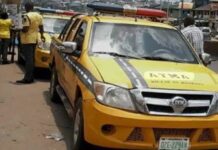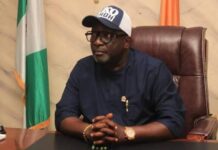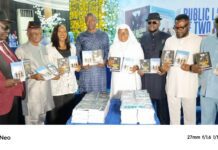Participants at ICRC training on humanitarian reporting for select journalists in Northern Nigeria.
By Marie-Therese Nanlong
Jos – Journalists drawn from prints, electronic and online media organisations in Plateau, Nasarawa, Benue, Kastina, Bauchi, Kano, Yobe, Zamfara, Kaduna and Sokoto states have acquired training on humanitarian reporting.
At a two-day media workshop on Humanitarian Reporting organized by the International Community of Red Cross, ICRC, the journalists were urged to apart from upholding the ethics of their profession, also emulate the principles of ICRC which are humanity, unity, impartiality, neutrality, independence, voluntary service and universality in the discharge of their duties.
Addressing the participants, Head of Sub-delegation, ICRC, Jos, Jose Luis Pozo-Gil said his organization understands the importance and strength of the media because what the media says can make a difference in any situation hence the need for participants to take advantage of the workshop and give their best in area of humanitarian reportage.
READ : ‘Governors should demand payment of revenue from solid minerals into federation account’
Also, Communications Coordinator of Red Cross Society of Nigeria, Robin Waudo said the workshop was put in place to intimate them on the activities of ICRC, build their capacity to deliver on the job of humanitarian reporting.
Similarly, the Communication Field Officer of ICRC, Jos sub-delegation, Patience Nanklin-Yawus, who explained the workings of the International Humanitarian Law, IHL as contained in the Geneva Convention tasked all stakeholders to uphold its provisions.
She cautioned that any journalist, who through his/her report or action shows to be taking sides, such a journalist loses his/her protection under the IHL.
Meanwhile, the Lead Facilitator, Dr. Bala Muhammad, a veteran journalists and senior lecturer at the Bayero University, Kano lamented the festering security situation in the country and called on journalists to look beyond the surface and interpret issues to the society.
He noted that conflict, criminality and hopelessness are causes of humanitarian crises in the country.
READ ALSO : EndSARs: Plateau state panel recommends N152m compensation for victims of police brutality
His words, “Access to gun is a dangerous thing, guns make criminals bold, drugs make them reckless, forests are where they hide, it is better we have no forest and live than have them and die.
“Motorcycles are vehicles of criminality and impunity of security agencies are also fueling insecurity. How many criminals have been arrested, prosecuted and punished? Nigeria’s conflict is fueled by arms, drugs and wrong philosophy.”
The participants commended the ICRC for organizing the workshop for them to improve their skills and promised to put into practice the skills acquired at the event.
















